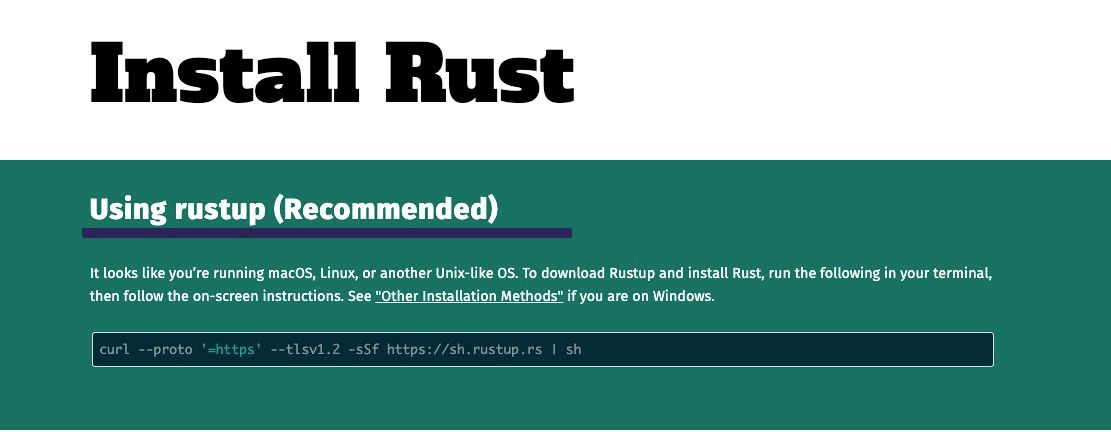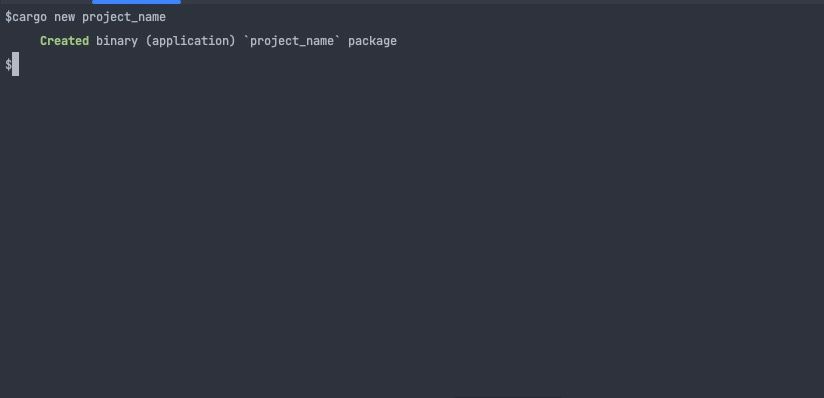Understanding a Minimal Rust Program
Rust is a modern day, units-stage programming language that prioritizes performance, trustworthiness, and safety. Its syntax is expressive and similar to other common languages, so it’s less difficult for seasoned developers to understand.
With developed-in memory security capabilities, this sort of as ownership and borrowing, Rust eradicates popular sources of bugs and crashes. The language is a great preference for minimal-level programming duties like working systems, embedded devices, and game engines. Its highly developed concurrency product facilitates the generation of substantial-overall performance and highly scalable purposes.
Finding Started off With Rust
The Rust programming language is not pre-put in on Home windows, macOS, or most Linux distros, so you’ll have to have to set up it to operate plans. Pay a visit to the official Rust internet site to download and set up Rust on your machine. You really should put in the most recent version of Rust to obtain its most current options and updates.
Just after productive installation, you can commence writing, executing, and constructing projects in Rust. The Rust standard library offers standard performance for functioning with the language. Past that, you can use the Cargo resource for dependency management and edition tracking.
Construction of a Negligible Rust Method
Each individual purposeful Rust application has a principal purpose that serves as the program’s entry level, and that’s in which code execution starts.
Here’s a minimum Rust software that prints “Hello, Planet!” to the console.
fn key()
println!("Hello, Planet!")
The main perform prints the “Hello, World” string to the console making use of the println macro from Rust’s macro procedure. The println! macro usually takes in a string literal as an argument and prints a string literal to the regular output.
Cargo the Rust Offer Manager
Rust’s bundle manager is identified as Cargo. Cargo delivers a practical way to handle dependencies, builds, and publish deals (crates) for your Rust initiatives.
Right here are some of Cargo’s characteristics:
- Offer Management: Cargo handles downloading and updating dependencies for Rust assignments.
- Develop Automation: Cargo builds your assignments, together with downloading dependencies, compiling your code, and linking it all alongside one another.
- Package Publishing: You can publish your own deals to the general public Rust registry for other individuals to use or keep them private for interior use with Cargo.
- Workspace Management: Cargo effortlessly manages numerous tasks as a one workspace, permitting you to share dependencies amongst assignments even though creating them together.
- Versioning: Cargo supplies versioning for your dependencies, ensuring that your task continues to work as anticipated even when dependencies update.
You can use the Cargo command line tool to make new Rust assignments. Open up your terminal and operate this command to develop a new Rust project:
cargo new job_name
The new command makes a Cargo application with the specified name in the directory.
With Cargo, you can speedily make new initiatives, deal with dependencies, make and publish packages, and considerably extra. Whether you’re performing on a compact personalized challenge or a massive-scale business application, Cargo normally takes away the complexities of code management.
Setting up and Importing Offers in Rust
You can use Cargo’s set up command to put in offers by specifying the deal identify. Specifying only a deal identify installs the bundle from the default registry (crates.io).
cargo install
You can use the –git flag to set up packages from Git repositories.
cargo set up --git
Following setting up offers, you can import them for your Rust tasks in your Rust file. To use a package in your Rust undertaking, incorporate the bundle as a dependency in the Cargo.toml file. Cargo results in the Cargo.toml file when you initialize a new Rust undertaking with the resource.
[dependencies]
= "variation"
Import the offer in your Rust file with the use statement.
use <package-name>
Compiling and Jogging Rust Plans
You can compile a Rust application making use of the cargo develop command. The cargo build command outputs a binary in the project’s root directory in the focus on/debug listing.
cargo construct
You can operate the command binary by executing the file.
./target/debug/<binary-name>
To compile and run a Rust method in one phase, use the cargo run command.
cargo run
You can create a release construct for your task deployment with the –release flag.
cargo build
You are going to find the release binary in the concentrate on/launch listing.
Rust’s Ownership Model Offers Productive Memory Management
Rust has a special possession model that facilitates its efficient memory management. Rust’s possession model is effective by retaining track of the ownership of variables.
Every worth in Rust has a solitary operator when the operator goes out of scope, the price is quickly dropped (freed from memory). This technique gets rid of the require for manual memory administration and tackles memory leaks.


